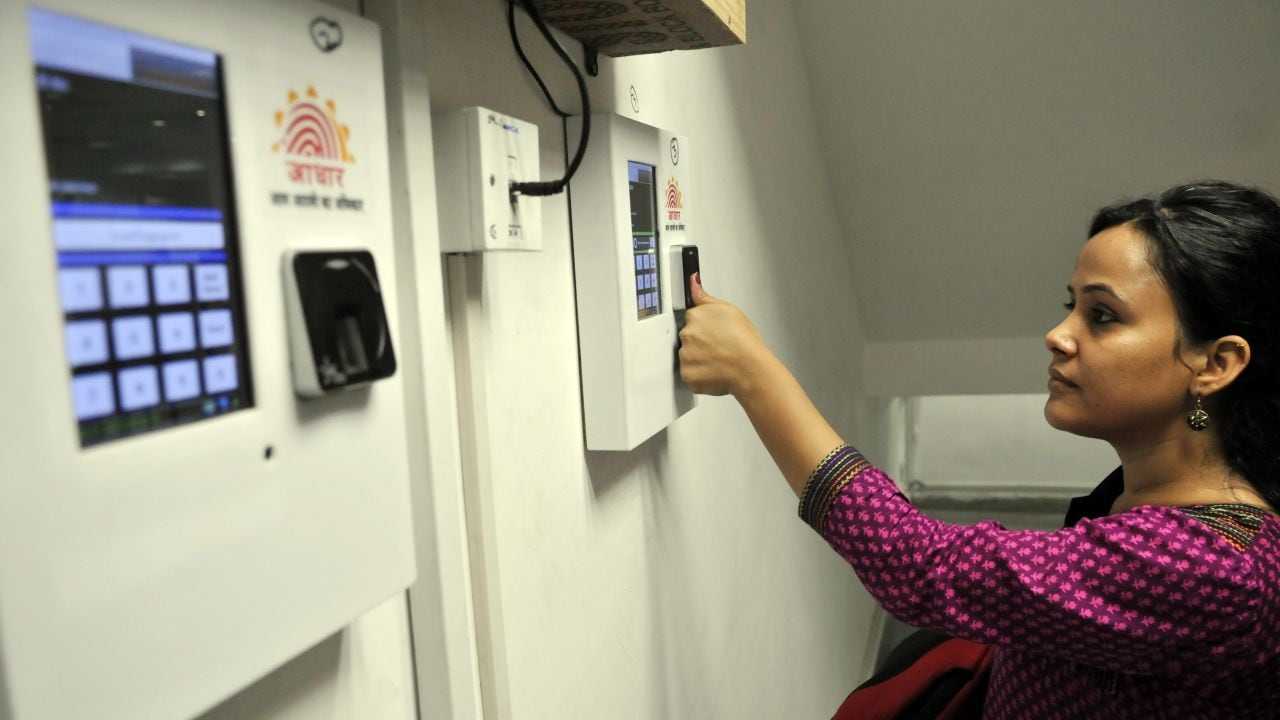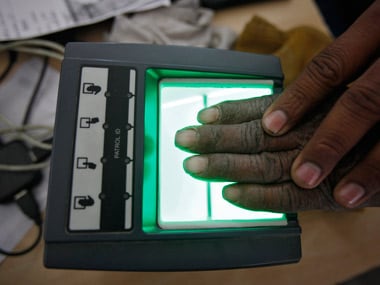On Day 24 of the Aadhaar hearings, the Attorney General of India, KK Venugopal continued his arguments on the constitutionality of Aadhaar. His primary argument was to establish that Aadhaar meets the requirements of proportionality and legitimate state interests. The issue of proportionality of the all-pervasive collection of fingerprints was discussed at length, in view of several American judgments on the issue.
The test of proportionality basically requires the means used to be proportional to the objectives sought to be achieved through the law. In other words, in order to constitute a reasonable restriction on the right to privacy, the invasion of privacy through Aadhaar must be proportional to the objectives of the Aadhaar Act.
Aadhaar is ideal for the digital era
The Attorney General drew out the following requirements from the Puttaswamy judgment for a reasonable restriction on privacy: the existence of a law, legitimate state interest, and proportionality. Continuing his arguments that Aadhaar meets these requirements, he stated that in today’s digital era, Aadhaar is the best way to prevent money laundering and ensure delivery of benefits.
He further argued that Aadhaar met the requirements of proportionality because all other options for an identity mechanism had been considered before selecting it. Further, it had the approval of the United Nations as well as the World Bank.
Government policy decisions not subject to judicial review
He further argued that the three organs of the State: the legislature, executive and judiciary needed to have mutual respect for each other. Reiterating that the Court cannot second-guess the intention of the government, he argued that policy decisions of the government, which are approved by experts, are not subject to judicial review.
To this, the Bench stated that they were not concerned with policy decisions but the Aadhaar Act. The petitioner’s arguments, they stated, were on the grounds of proportionality. The Attorney General argued that there was no question of privacy violations in this case; the real issue was of safety and security which, according to him, has been proven.
Virtual ID ought to be applicable to all Aadhaar numbers
Turning to Virtual ID, he argued that this is an excellent safety measure. On being asked by the Bench, he informed them that this was an additional safety measure, and the onus was on the individual to use it. The Court suggested that the measure ought to be made applicable to every Aadhaar number, without the individual having to generate it.
‘Biological attributes’ and excessive delegation
Next, the issue of ‘biological attributes’, under the definition of biometric information, being open-ended under the Aadhaar Act was raised. The Attorney General stated that blood, urine, and DNA samples could be added to this list. He further argued that this was subject to judicial review, in the same way, that collection of fingerprints and iris scans were currently under review.
The Bench here pointed out that the UIDAI had been given the power to decide what is it be included in this definition. The Bench further stated that the requirement to lay the rules before the Parliament under Section 55 of the Aadhaar Act, only allowed the Parliament to disapprove of the rules. The initial power to frame the rules remained with the UIDAI, which could amount to an excessive delegation.
Is the pervasive collection of fingerprints proportional?
Next, the Attorney General turned to the issue of proportionality with respect to collecting fingerprints. He cited an American judgment which found the collection of fingerprints for verification of a prior criminal record to be a minor inconvenience, minimally intrusive and not a ‘fundamental decision’ such as choice of contraception.
The Bench here pointed out that the issue was not of fingerprinting per se but of narrow tailoring, as can be seen in fingerprinting under acts like the Bombay Habitual Offenders Act and the Identification of Prisoners Act. The petitioners’ objection, they stated was to the pervasive nature of Aadhaar. To this, the Attorney General again stated that there was a legitimate state interest being met. The purposes, moreover, were specific: to prevent subsidy loss, income tax fraud, terrorism, etc.

The Attorney General argued that the all-pervasive collection of fingerprints meets proportionality requirements.
Fingerprinting carries no presumption of criminality
A second American judgment was cited which held that collection of fingerprints did not carry a presumption of criminality, and could be used for non-criminal purposes such as a means of identity. The point of inconvenience, he argued, was minor, and the violation of dignity non-existent. He further argued that if an alternative means were available, this was a choice to be made by the legislature, not the judiciary.
The possibility of misuse cannot invalidate identification mechanism
The Attorney General then turned to the American case of Whalen v. Roe, which involved the reporting and storage of data on pharmaceutical drug prescriptions. The case had held that there was no constitutional violation, and the possibility of misuse was not a ground to invalidate a patient identification mechanism. The need for balancing interests was pointed to. To this, the Bench pointed out that the position under European law is completely opposite.
Wide latitude to social welfare schemes
Next, the Attorney General cited other American judgments discussing fingerprinting. The last judgment cited had held that wide latitude should be given to the State when implementing welfare programs. This case also dealt with the use of Social Security Numbers (SSN) to eliminate fraud and duplicates. The Attorney General also argued that the SSN collects a lot more data than Aadhaar.
The arguments will continue on 5 April.
Sources of arguments include live-tweeting of the case by SFLC.in and Gautam Bhatia. You can read our past coverage of the Aadhaar Supreme Court hearings below:
Why SC needs to look into technical evidence of Aadhaar’s surveillance capabilities
Lack of governmental ownership of CIDR’s source code can have serious consequences
Will State give citizens rights only if they agree to be tracked forever, asks lawyer Shyam Divan
Petitioners argue on centralisation of data and challenge Aadhaar’s claims on savings
Petitioners argue for a voluntary ID card system that does not collect user data
Aadhaar is architecturally unconstitutional, argue the petitioners
Petitioners argue that Aadhaar violates dignity by objectifying and depersonalizing an individual
Petitioners seek compensation for starvation deaths and extension of March 31st deadline
Section 7 exception in Supreme Court’s interim order greatly affects people’s constitutional rights
Entire Aadhaar project is beyond the stated objectives of Aadhaar Act, argue petitioners
Aadhaar hearing: Supreme Court expresses concerns with data breaches, Aadhaar security and profiling
The author is lawyer and author specializing in technology laws. She is also a certified information privacy professional.
Published Date: Apr 05, 2018 11:54 AM | Updated Date: Apr 06, 2018 09:02 AM
